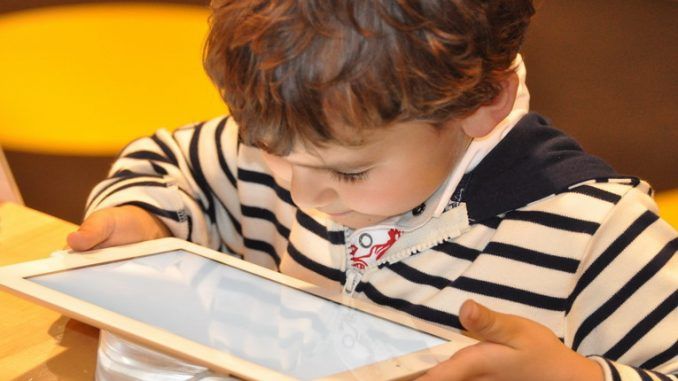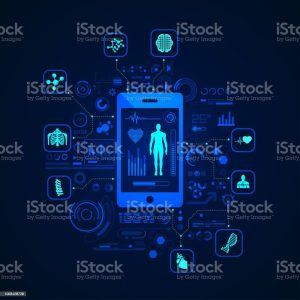Pediatricians call for caution on the use of smartphones, tables and computers

Pediatricians appeal for caution on the’use of smartphones, tables and computers
Seven out of 10 preadolescents (aged 8 to 13 years) report having computer tools, such as smartphones or computers, at their disposal every day; about 23 percent can access them without time restrictions, and as many as 1 in 6 report being able to do so without any parental control. The smartphone for exclusive personal use was found to be the most widely used IT tool, followed by tablets, playstations, and computers. The vast majority of respondents say they use IT tools to go on the Internet, for school research, download music and video games, chat, and watch videos; less than 1 in 2 say they also use their smartphones to make phone calls. The research also found that the age of first use averaged 9 years for boys and 10 years for girls in the 2016 survey, and less than 8 years in the 2017 and 2018 surveys, with reported peaks of 1 year of age.
These are the preliminary results of a survey
These are the preliminary findings of a survey presented by one of the authors, Luigi Greco, a family pediatrician in Bergamo, at the conference “Digital yes, digital no, the effects of digital on neurodevelopment” organized by the Family Pediatricians’ Union (Simpef). Greco, together with a group of 90 colleagues from the province of Bergamo and the local Azienda per la tutela della salute (ATS), administered a questionnaire between 2016 and 2018 to nearly 8,000 preadolescents between the ages of 8 and 13 to assess their age of first use, how they access IT tools, and their internet and social media use.
Rinaldo Missaglia, Simpef National Secretary
“These early data force some reflections – commented Rinaldo Missaglia, Simpef national secretary. First of all, they testify to the almost ubiquitous diffusion of these technologies among our young patients. This should serve as an incentive for each of us to learn professionally what the risks may be from exposure to and use of the tools that make use of them.
We are, in fact, dealing with something that is undoubtedly useful, if properly used for correct reasons and with appropriate timing, but whose inappropriate use is capable of undermining health, especially at particular developmental ages. I am referring, in particular, to the biological risks, resulting from excessive exposure to their functioning, which are particularly relevant in the first thousand days of life, thus since development in the womb, to the risks for the cognitive and behavioral spheres, and, last but not least, to the educational and social risks, which should be taken into serious consideration in the period that we technically refer to as the “second thousand days of life,” coinciding with the middle stages of adolescence. In other words, utmost care would be recommended already during gestation.”
Ernesto Burgio, pediatrician and expert in epigenetics
“It is important to spread proper awareness about the risks and potential of these new and powerful digital technologies among parents and insiders i.e., teachers, psychologists, family pediatricians,” recalled Ernesto Burgio, pediatrician and epigenetics expert, member of the scientific council of ECERI (European Cancer and Environment Research Institute). We are, in fact, faced with technologies that can interfere both directly, through electromagnetic fields, and indirectly on the development of the brain and the psycho-neuro-endocrine system during periods of vital significance.”
Daniela Lucangeli, professor of developmental psychology at the University of Padua
“There is now significant scientific literature showing that excessive and sustained exposure to smartphones, especially in developing organisms, can prove quite dangerous for the epigenetic programming of cells, tissues and organs,” was echoed by Daniela Lucangeli, professor of Developmental Psychology at the University of Padua. Moreover, in the context of both neurodevelopmental disorders, which are on the rise throughout the Global North, particularly those on the autism spectrum, and inflammatory and cancer pathologies, research can help us understand the pathogenetic mechanisms potentially linked to this exposure.
Regarding the effects in the psychological and social spheres, it is increasingly evident that the excessive use of this technology can lead to states of true addiction, especially if exposure begins in the early stages of life. It is difficult to say today how much the abuse of these technologies may have affected the increase in anxiety, obsessive-compulsive, mood, and youth depression disorders documented in the United States and many European countries. It is clear – concluded the expert – that pediatricians are and will increasingly be on the front lines, having the opportunity to act within families to limit the use of mobile and digital phones in the early ages of life and as “child advocates” for the precautionary principle to be used.”
We are ready to face this challenge
“We are ready to face this challenge,” Missaglia replied. In fact, in the context of family pediatrics, there are already the professionals that an evolved health care system will need to know how to use for the optimization of social and health care interventions for these and many other care issues that pertain to the health and proper developmental development of the child and adolescent: a development that begins in the womb but ends not until the child reaches the age of majority. That is why I reiterate what I have already stated several times and in several places, about the advisability of extending pediatric care coverage to the age of 18.”
The family pediatrician is today’s first point of contact for parents
“Today, the family pediatrician is the parents’ first point of contact when it comes to the health of the child and adolescent. He or she is the person who knows the child’s history and can be the first to intercept the child’s problems. Our desire for updating is concrete, and the conference we organized was only a first step in what we would like to be an effective collaboration with researchers, to train family pediatricians on a topic of stringent topicality, so that they can, with their advice, make parents more aware as well,” emphasized, finally, Monica de’ Angelis, family pediatrician in Milan, Scientific Manager of the Simpef Training Department.



